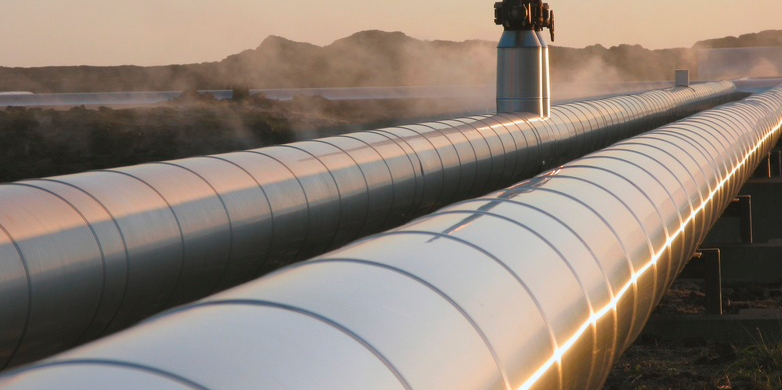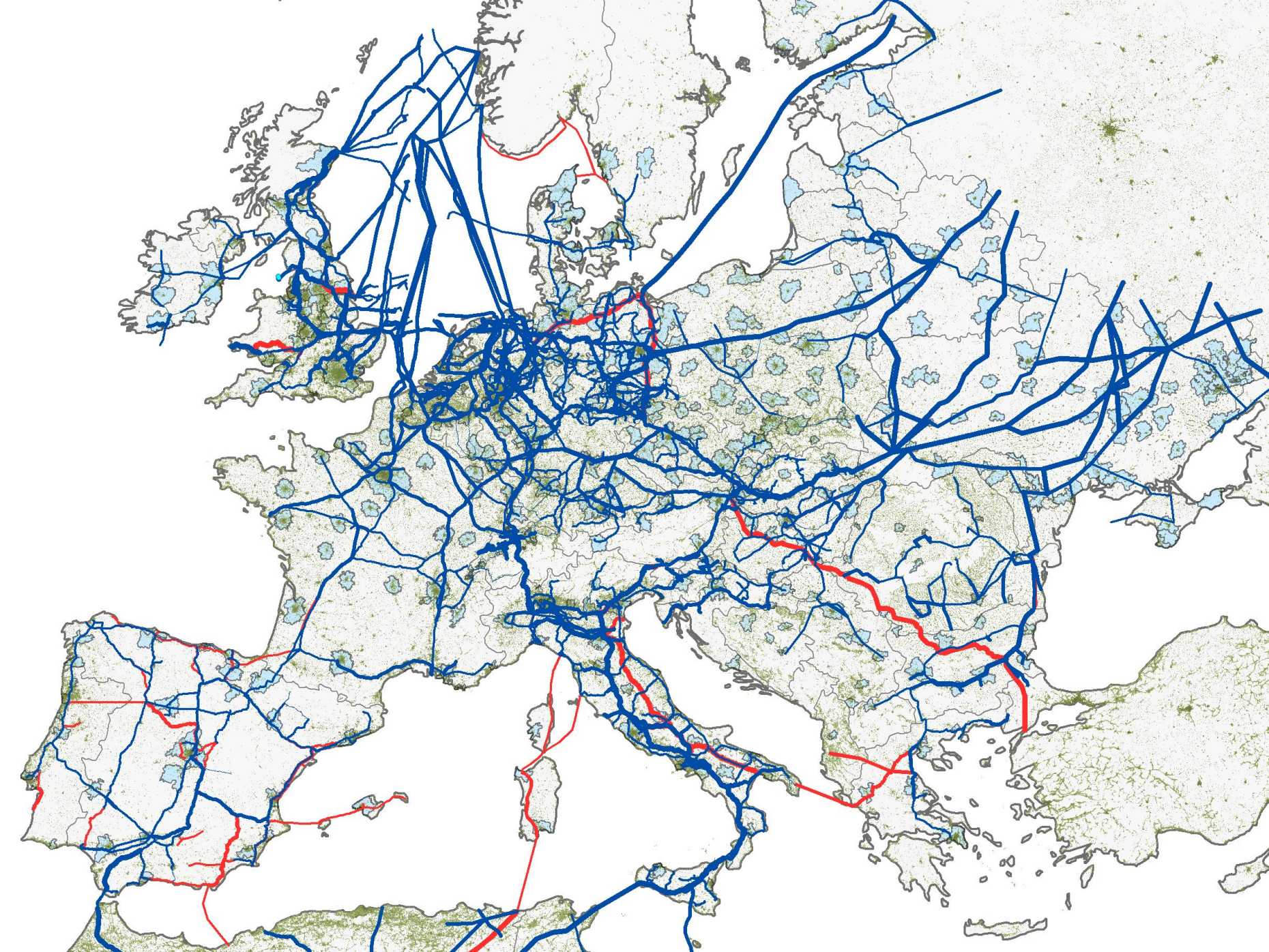Preventing natural gas crises
Europe can withstand a significant shortage in its natural gas supply provided it has a fair distribution strategy. ETH researchers have developed a model demonstrating how best to mitigate deficits in the pipeline network.
The scenario resembles something out of a James Bond film: the bad guys want to attack the Bosphorus with an atomic bomb to radioactively contaminate a large area. This way, only their own pipeline can transport oil from the East to the West. What makes for a thrill in the film The World Is Not Enough creates justifiable fear in reality. Terrorist attacks on energy supplies such as the assault on an Algerian gas plant in January 2013 could, in theory, trigger an energy crisis. Russia, too, has curtailed gas deliveries several times in the past when the country was involved in disputes with Ukraine over gas prices. And Great Britain's gas reserves were only sufficient for six more hours at the end of the harsh 2013 winter because a technical failure had paralysed a major import pipeline.
Avoiding bottlenecks
What happens when a major supplier to the European gas network is suddenly cut off? Dirk Helbing, ETH Professor of Sociology, and his team studied this question. In the process, they collected data on population density, metropolitan regions, the pipeline network, liquefied natural gas terminals and the annual flow of gas throughout Europe. “We combined several datasets, some of which could only be obtained with great difficulty,” explains Helbing. Using these data, the researchers simulated the flow of natural gas under various conditions. Their surprising discovery: when less gas is flowing, this does not result in less overload. Helbing explains, “The pipeline network is not designed to handle this scenario.” If countries suddenly procure their natural gas through other avenues, this leads to bottlenecks in these pipelines.
The researchers used their model to investigate how to best avoid these bottlenecks. “You can't simply let the market deal with gas distribution in the event of a crisis,” says Helbing. After all, distribution problems have often led to political and even military conflicts over the course of history. “Europe must be able to deal with a crisis such that industry is supplied with energy and people are kept from freezing to death in their homes,” says Helbing. The ETH researchers developed a solution that uses a decentralised fairness algorithm to prevent bottlenecks. The scientists sought inspiration for the solution by looking at how data flow over the Internet. They found that congestion-free connections can be used to a certain extent more or less for free. However, once the network becomes overloaded, costs rise quickly. “The price on congested pipelines works as a control mechanism,” explains Rui Carvalho, who contributed to the study on behalf of Queen Mary University of London and is now a researcher at the University of Cambridge. The fairness mechanism encourages countries to transport their gas via the least congested routes. For this, sensors in each pipeline have to measure the flow.
“You can't simply let the market deal with gas distribution in the event of a crisis.”Dirk Helbing, Professor of Sociology, ETH Zurich
Cooperation in times of crisis
This method is fair because no country can set the costs itself. And since the mechanism is decentralised, it is also less vulnerable to attacks, delays or communication disruptions. But everyone must also be willing to tighten their belts in times of crisis, says Helbing. An agreement concerning the fairness algorithm must be reached ahead of time to ensure that the cooperation actually works. Using their model, the researchers identified groups of countries that depend on the same exporting countries for their gas imports and therefore find themselves in a similar situation. “We thus reduce a huge number of gas consumers to a relatively small number of parties that would have to find a common solution during a supply crisis,” write the researchers. Their conclusion: with fairness and cooperation, the European natural gas network is better equipped to handle disruptions than expected.
A scenario cutting off supplies from Russia would have the greatest consequences. The gas flow through the European network would be reduced by nearly a third. The researchers' model allowed them to study how well this loss could be compensated by gas supplies from Norway and the Netherlands. The findings: while countries such as Switzerland or Germany would hardly expect any losses, the Czech Republic and Slovakia could still meet their gas demand by up to 50 percent using a fairness strategy and European cooperation. In Ukraine, which is the main transit country for Russian gas, it would be difficult to cope with the situation without additional measures.
Neighbours benefit the most
The various scenarios showed another surprising effect: countries like Germany that invest in new pipelines would probably benefit less than some of their smaller neighbours such as Switzerland. The researchers write that, in general, the construction of the new pipelines planned in Europe will only slightly mitigate the consequences of a hypothetical energy crisis. Like so many of the challenges of the 21st century, solving the problem of reliable energy supplies cannot be done with technology alone. It also involves social challenges, namely, those connected with fair cooperation.
Literature reference
Carvalho R et al.: Resilience of natural gas networks during conflicts, crises and disruptions, PLoS ONE 2014, published online 12th March. doi: external page 10.1371/journal.pone.0090265

